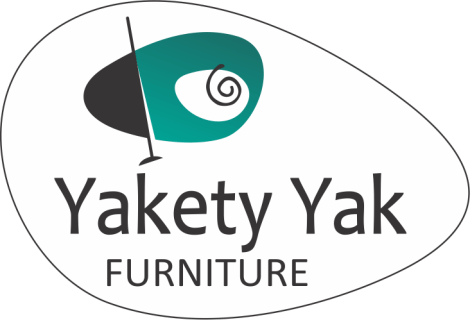At Yakety Yak, sustainability is a core part of our company’s ethos and we design and manufacture our pods, desks and counters within a life-cycle framework. By employing Life Cycle Analysis, our designers consider the various stages of our products’ lives, from manufacture to disposal, with the aim of reducing their overall environmental impact.
5 reasons YAKETY YAK Service Desks are the sustainable choice…
Manufactured mindfully
We prioritise using materials, supply chains and manufacturing systems that have the lightest environmental impact possible. This includes assessing how materials are sourced and produced, as well as their potential to be recycled at the end of the service desk’s life. As a benchmark for continued improvement, emissions for each desk are calculated and monitored against annual sales.
Built to last
By using robust construction and quality components, (such as demountable steel frames, durable finishes and the world class LINAK actuator system), our service desks are built to withstand busy library and education environments and stay useful for many years. This makes Yakety Yak desks healthier for the planet and a smart financial investment.
Designed to evolve with your library / Respond to the future
As technology continues to transform how libraries deliver their services, desks that offer flexibility are a real asset. Our service desks feature a height-adjustable, mobile, and mix- and-match design. They readily adapt and repurpose as needs change, increasing their lifespan and ensuring they remain relevant for many years.
Designed to support wellbeing
A customer service area that accommodates people’s diverse needs will never go out of fashion. Our height-adjustable desks are ergonomically designed to adapt to the person and the task at hand, supporting staff and customers as they work and interact. In particular, our desks:
- Reduce the risk of occupational injuries, by allowing staff to work at an ergonomic and safe height.
- Enable staff to comfortably interact with customers around our curved, friendly worktops (either seated or standing).
- Comply with relevant codes, ensuring access and usability for everyone – particularly those with disabilities.
Easy to maintain, repair and recycle
We aim for our service desks to have as long a life as possible, ensuring they are easy to maintain and repair. The desks can easily be disassembled for repair or replacement of parts (which are readily available). Further, as far as it is achievable, we use materials that can be recycled at the end of the desk’s useful life. (For more information, see the ‘Product end of life guide’ at the end of our User Guides under ‘Product Information’.)
We understand that moving toward a better future for our planet is an ongoing process and we are all learning. We are committed to continually improving our systems, actively engaging with and staying up-to-date with sustainable best practices.
Environmental policy
To pursue a process of ongoing improvement to minimise operational impacts on the environment. To work toward utilising what are considered sustainable, renewable and/or recyclable materials and processes in the design, manufacturing, sale and distribution of all products.
Manufactured under the following commitments and policy objectives*:
- To have zero breaches of environmental legislative requirements and regulations.
- To comply and work toward exceeding local regulations for discharge, noise, air emissions and land use.
- To continually improve environmental performance and work toward minimising pollution created from production process, sales and distribution.
- Design and production planning processes that seek to audit and utilise environmentally sound materials and processes and optimise usage through design consideration within a life cycle perspective.
- Analyse and monitor inputs to establish effects accurately, allowing investigation of alternatives to reduce impacts.
- Analyse and monitor outputs to ensure they meet legislation, whilst also looking for methods to reduce waste and optimise waste streams for recycling. Strive to eliminate environmental hazards from routine and non-routine activities.
- Analyse alternatives to influence suppliers’ environmental impacts that are under the direct control of manufacturers.
